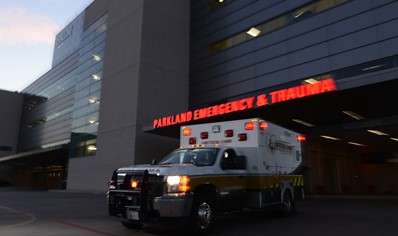
How Dental Health Impacts Overall Health
October 23, 2024
Taking good care of your teeth and gums is important for your dental health. It’s also important for the health of your entire body.
Brushing and flossing removes bacteria on and between your teeth. During professional cleanings, your dentist removes bacteria more thoroughly, including the areas just under your gumline.
Bacteria can cause infections inside your teeth and gums. Harmful bacteria can then spread from your mouth to your bloodstream, creating problems throughout your body.
A few of these health problems are listed below.
Delayed Surgery or Cancer Treatment
You could have an infection in your tooth or gums and not know it. If you need certain types of surgery, such as joint replacement or heart valve surgery, your doctor will want you to visit your dentist first.
If you do have a dental infection, bacteria can travel from your mouth to your new joint or heart valve and cause serious infections. Your surgeon might decide to cancel your surgery until after your dental infection is successfully treated.
If you receive cancer treatment, it can weaken your immune system. That means your body cannot fight infections very well. If you have an infection in your mouth, your body may be too weak to fight it. This can lead to much more serious infections—some even life-threatening.
Diabetes
If you have diabetes, you can get infections more easily than other people. That includes infections in your gums. In fact, most adults with diabetes have gum disease, also known as periodontal disease. But even people without diabetes need to be careful about getting gum disease. Why? Because gum disease causes inflammation in the body, and long-standing inflammation can lead to higher blood sugar levels. This, in turn, puts you at increased risk of developing diabetes.
High-Risk Pregnancy
If you have gum disease while you are pregnant, you are at much higher risk of having your baby prematurely. Again, this is because gum disease causes inflammation in the body that is thought to be a cause of premature births. Premature or preterm babies have a higher risk of health problems at birth.
Sleep Disorders
Do you grind your teeth in your sleep? Teeth grinding can be a symptom of obstructive sleep apnea, a serious condition that causes people to stop breathing while sleeping. Sleep apnea can lead to high blood pressure, heart disease, and headaches. Be sure to tell both your dentist and your doctor if you have sleep issues, such as your teeth or jaw hurting when you wake.
Respiratory or Breathing Problems
Lung and breathing disorders are linked to poor dental health. Bacteria from an infected tooth or gums gets into your saliva. This can then get into your lungs, where it can cause infections like bronchitis and pneumonia. Infections in the lung can trigger an asthma attack.
These are just a few examples of the connection between your teeth, your gums, and the rest of your body. The best way to stay as healthy as possible is to see your dentist and doctor for all routine checkups and ask about any symptoms as soon as you notice them.
And remember, the most important member of your health care team is you.
Be Sure to Use Your Dental Benefits
Parkland Community Health Plan members do not need a referral from their doctor to visit a dentist. Visit the dentist every six months for a checkup and cleaning.
PCHP’s STAR Medicaid and CHIP plans cover emergency dental services, including:
- treatment of a dislocated jaw
- treatment for traumatic damage to teeth and supporting structures
- removal of cysts
- treatment of an abscessed tooth or gum
Call your child’s Medicaid dental plan to learn more about the services they offer.
Check your Dental ID card to see which dental provider you have:
DentaQuest
1-800-516-0165
MCNA Dental
1-800-494-6262
United Healthcare Dental
1-800-822-5353
Get Extra Benefits and Paid Rewards for Dental Care
HEALTHfirst (STAR Medicaid) members age 21 and older can get up to $400 per year for dental services, including checkups, x-rays, and cleanings.
Learn more about extra benefits and paid rewards here.



